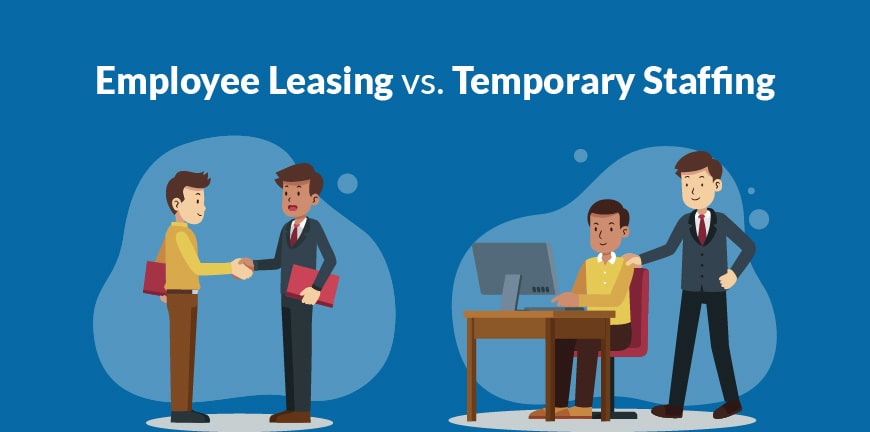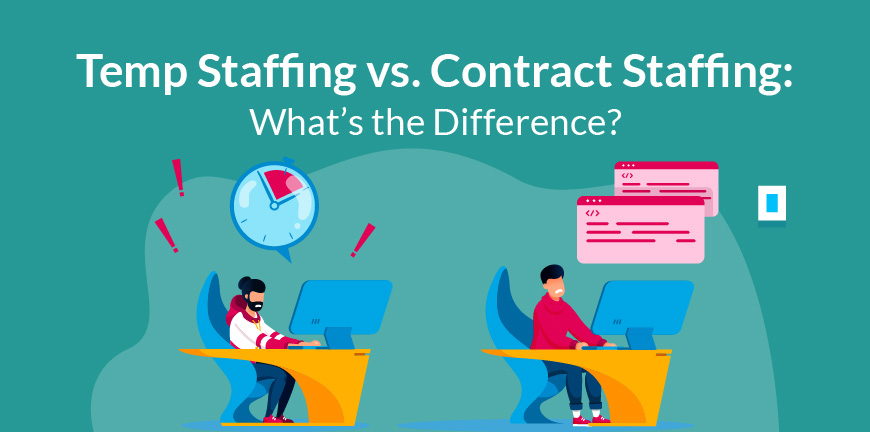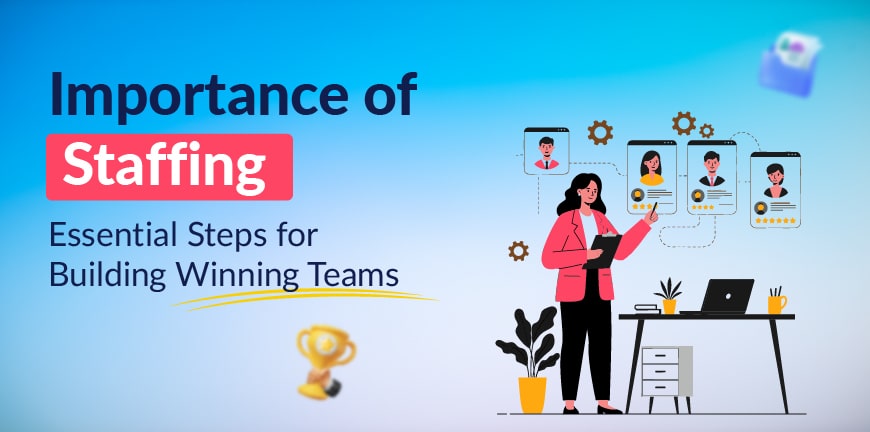
Difference Between Talent Acquisition and Recruitment
05/10/2023
Employee Leasing vs. Temporary Staffing
10/10/2023Many companies interchangeably use the words contractor and employee, though they mean two very different things. A temp worker just adds to the confusion. What is the difference between all three of them, if there is a difference at all? Temp staffing and contract staffing too may be used interchangeably in some companies, especially because both involve non-permanent employees. But there are several differences between them contract staffing and temp staffing.
To begin with, a contractor is hired on contract for a specified duration whereas employees serve the company full-time. Temp workers are sourced for temporary jobs just like contractors but lack most of the benefits and compensations awarded to full-time employees.
Let us now look at individual definitions, beginning with that of staffing itself and then these two types of staffing, temporary and contract, before we delve into the differences.
What is Staffing?
the process of attracting, selecting, assessing, and then hiring individuals from a specific industry to fulfil the temporary, seasonal or contractual needs of companies, in tech or non-tech sectors is referred to as staffing.
Staffing differs from recruitment in the fact that recruitment happens for full-time permanent roles whereas staffing happens for temporary roles. Both temp and contract staffing have their benefits and cannot be used interchangeably.
What is Temp Staffing?
The process of attracting, selecting, and onboarding individuals for specific temporary roles through a recruiter, where the responsibility of managing payroll lies with the staffing company, is called temp or temporary staffing.
What is Contract Staffing?
The process of attracting, selecting and absorbing individuals for temporary or contract work, on the main company’s payroll is called contract staffing.
Temp Staffing vs. Contract Staffing
There are some key differences between temp staffing and contract staffing. Let us look at those differences now.
- The staffing company pays for the temp work, whereas contractors are paid by the employer or the business itself.
- Generally, temp workers are hired on an hourly basis, whereas contract workers are paid pro-rata.
- There are no sick leaves or other compensations in temp work, whereas contractors are generally offered all the benefits of full-time employees.
- There is more job security for a contractor than a temp worker, as temp workers can be terminated without having to serve the notice period and as and when the employer chooses.
Benefits of Temp Staffing
Temp staffing is the new go-to standard to pick for any temporary job by most employers, and there are reasons for the same. Let us look at some of the benefits of temp staffing.
- There is no need to award the leaves or other compensation, generally provided to full-time employees, for temp workers.
- There is no need to register the temp worker on the company’s payroll and generally no need to provide any guidance or training, as most modern temp staffing companies do this anyway.
- Saves a lot of money for the company as the temp worker can be hired for specific jobs or in markets where talent is not very expensive.
- Provides flexibility to the company of terminating the contract with the temp worker, when they feel it is not feasible to move forward with it anymore, without asking worker to serve a notice period.
Benefits of Contract Staffing
Though temp staffing may seem like the more beneficial choice for the employer, contract staffing has got its own set of benefits too. The following are the few important benefits of contract staffing.
- Visibility into the future of work at the company for the period specified in the contract without having to manage the employees full-time.
- Recruitment for specific skills that are much in demand and impossible to recruit otherwise.
- Saves a lot of time for the employer, as they can hire for project-critical rules very quickly.
Should You Opt for Temp Staffing or Contract Staffing?
As a business, which of these two must you opt for? This is a tactical decision and one that is best helped by working in tandem with an HR consulting company as a staffing partner. Your staffing partner will advise you on whether a particular position or list of positions must be temp staffed or not.
Generally, those positions that require a lot of expertise are better served by contract staffing whereas those that will have low commitment levels from the business are served best by temp staffing.
Are You Looking for a Staffing Partner?
If you are undecided about what staffing type to pick to bring talent onboard, and are also on the fence about which HR company would be best for you, then decide on what you are expecting from the staffing partner – how many positions you want to close and how much time and money you are willing to spend on talent acquisition and management and what demography you are looking at.
Once you are sure of these things search for the best HR company that satisfies these criteria or opt for the services of a 25-year-old reputed company in HR services, Alp Consulting. Talk to us today, to know more.
Contact Us For Business Enquiry

Kasthuri R
Kasthuri R is the Co-Founder & Executive Director at ALP Consulting, bringing over 23 years of experience in search, staffing, and HR consulting. She has been instrumental in driving ALP’s recruitment, employee leasing, and executive search practices across diverse industry verticals. With deep expertise in talent acquisition, HR strategy, and operational management, Kasthuri has built scalable, client-focused solutions that enhance workforce efficiency. Her strategic leadership continues to steer ALP Consulting toward innovation and excellence in people management.




